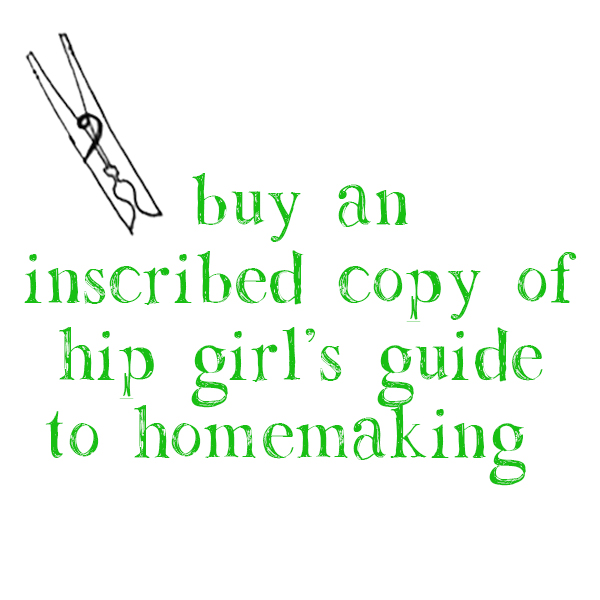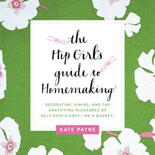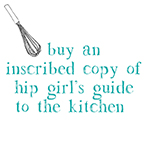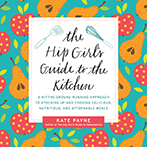Why I'm not a 'homesteader'

A recent discussion with a friend sparked this post. I haven’t shared my thoughts directly on the subject, but have actively avoided the word ‘homesteader’ in my promotions of my book, development of my brand and activities therein.
This is a great intro to the topic of why I’m not into celebrating a word born from an era where white people got incentives/encouragement to live in places where existing cultures and groups were already being self-sufficient and getting along quite nicely.
It’s not exactly the case of Cristoforo Colombo (Columbus’ name in his native Italian), since many of the homesteaders were for the most part just concerned with surviving and setting up camp/townships/etc. while other homesteaders were specifically sent to do similar work as Columbus. The feeling is the same for me though, people already lived there and celebrating the feeling/era of homesteading by reusing that word just ignores a whole lot of other peoples’ history. Our word choices are extensions of the histories in which they’re rooted.
My friend Meg in Seattle wrote a very informed and thorough description of the historical and societal contexts surrounding the Homestead Act of 1862 on her blog Grow & Resist. It’s a great read (that post and others), and for those of you who missed out on anthro/soc or race relations classes in college or would just like to know more about the history/context of the words that are floating around these days, I encourage you to hop over and visit.
I very much agree with Meg’s statements about the word ‘homestead’:
When I hear ’homestead’ I think manifest destiny & rugged individualism. A bit less resistance & self-sufficiency and more “Get out of our way- we own this place. You know, cuz it’s our God-given right. So move along. This is our land now. Mine, mine, mine!“
When I think ‘homestead,’ I think racism, colonization and genocide. Not sun-warmed tomatoes, string beans and kale. There is too much tainted history wrapped up in the term.
Words are very important to me (I still am and always will be a poet) and thinking about how we use them. I’m thinking a lot lately about what my brand does say, who I am and what I stand for and as a result I’ve been working on shifting away from quite-differently, though-still-loaded words like hip, homemaking and girl, and I hope to share with you all some of my thoughts on that process soon.
 Community Building,
Community Building,  Why Homemaking?
Why Homemaking? 






Reader Comments (9)
Thanks for this post. I too agree many words are loaded and should be challenged. I read it just after hearing of the GAP's blunder with putting "manifest destiny" as an inspirational (?!) motto on one of its t-shirts: http://www.good.is/posts/because-genocide-s-not-trendy-the-gap-s-manifest-destiny-t-shirt-sparks-outrage
So often we jump on bandwagons and adopt movements only to later realize their full implications. Thank you for being so thoughtful and thank you for being willing to open up a topic that is so often shied away from! We should all be so intentional in our choices.
Thanks for the shout out Kate and for continuing this important conversation! I think many adopt terms and phrases without considering the implications- across the board (I'm thinking commonly used (mis)used terms such as queer, gay, retarded, etc)
It is easy to lazily blow someone off as being "too PC" or whatever...but really? Words mean things. Words have unintended consequences. Words too often have historical traumas embedded.
Thanks Kate!
I'm so grateful that you posted this. I've been using the term "urban homesteading" because I saw it in one of the books you mentioned, and I didn't correlate it with our seriously bloody history. Like most young people who grew up on Laura Ingalls Wilder and the general Intro to American History narrative, my natural impulse is to think of homesteading in a "taming the wilderness" "independent survival" "cute pioneer bonnets" sort of way. Thank you so much for reminding me to be more aware of this, and I'll be spreading the word.
I'm not sure that I even like the "tame the wilderness" connotation. I live out west and like the wilderness. I'd really rather not have it tamed, thank you. I guess that I think of homesteading as despoiling in a way. Shouldn't we be trying to live with as small a footprint as possible, even when farming?
Ivana, thanks for sharing that. Woah! I can't believe that shirt made it through all those marketing and other execs that probably had to approve it.
Aneelee & Meg, you are both so thoughtful. I appreciate you both as friends and readers.
Little Red, you're right in mentioning that taking in the ideas that are presented to us (with good intention) are not always the full picture. I am happy to hear your thoughts and glad you'll be taking with you some more of the picture.
EL, while that notion of "taming the wilderness" can be perceived in many ways, I think it's important to keep in mind what it may mean for some people, on one hand it could mean foraging and making use of things in new and creative ways, and for others it could mean building condos where there previously was forest. Though Little Red doesn't appear to be promoting any particular part of that idea at all (just noting prior conceptions), your feelings on the matter are also valid. I appreciate your note about what homesteading means to you. I agree with reducing our footprint in everything we do.
Let history judge you not from the future; as such you have from the past.
I'm quite surprised that you so earnestly reject "homesteading" without a similar rejection of "homemaking." To me, the latter is far more offensive. It embodies the subjugation of women, the trivializing of women's work, and all kinds of other misogynist histories and attitudes. Homesteading, in contrast, evokes mostly good things to me, although I see your point that my perspective is clouded by my privilege.
B, Yes, homemaking is fraught with lots of societal and feminist issues (and I did mention at the end of my post the rebranding we're working on), but nothing so large as the wiping out of entire groups of people.
I've read a lot about the eras that launched home ec and the new class of homemakers (great books like Laura Shapiro's Perfection Salad and her follow-up Something from the Oven, Anne Mendelson's Stand Facing the Stove and these offer a lot of insight into the socio-political climate facing 1890's-1950's women. Largely, the American identity--not just the 50's era homemaker--appears to come from marketing agencies and a wildly consumerist society.